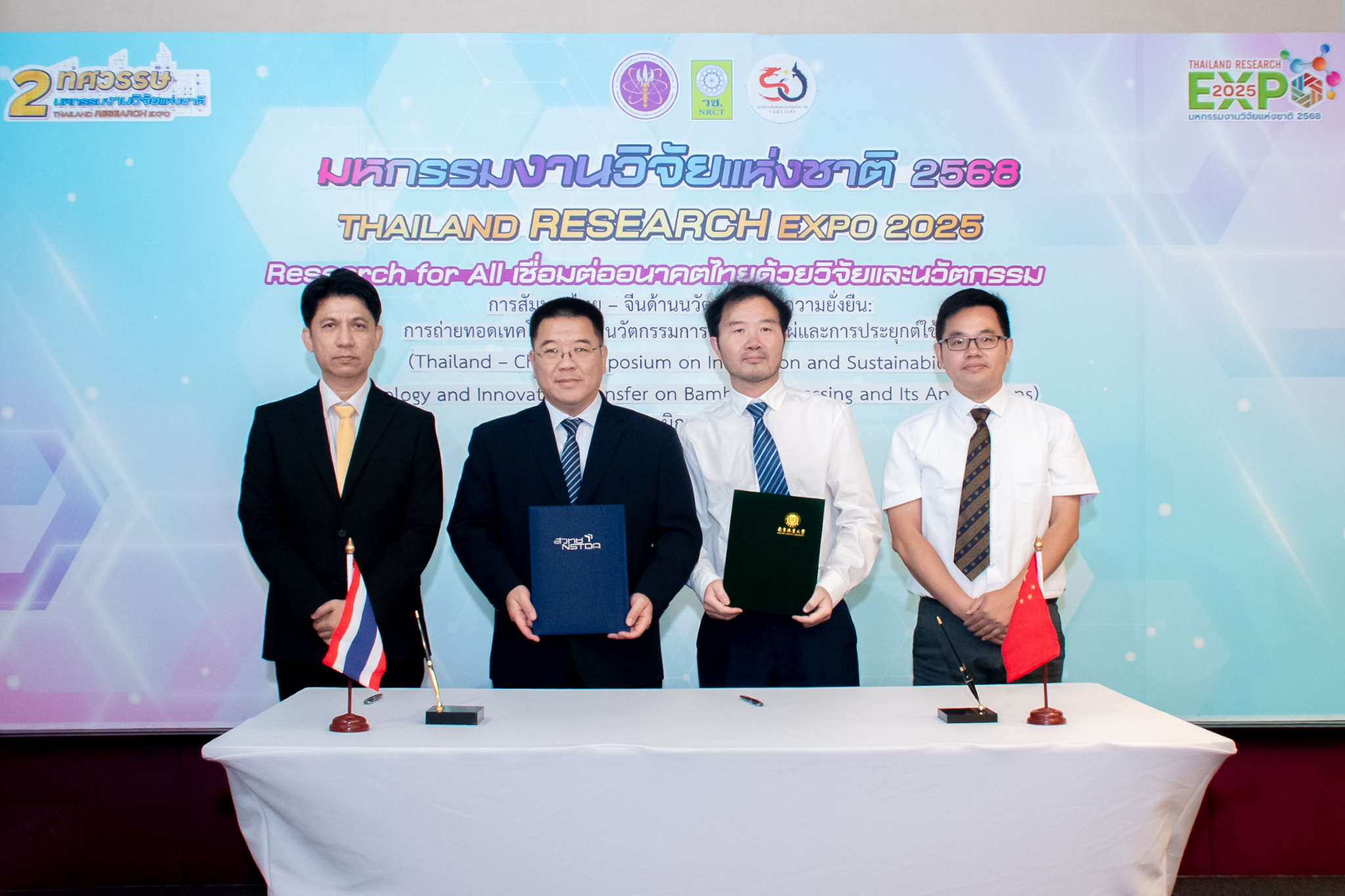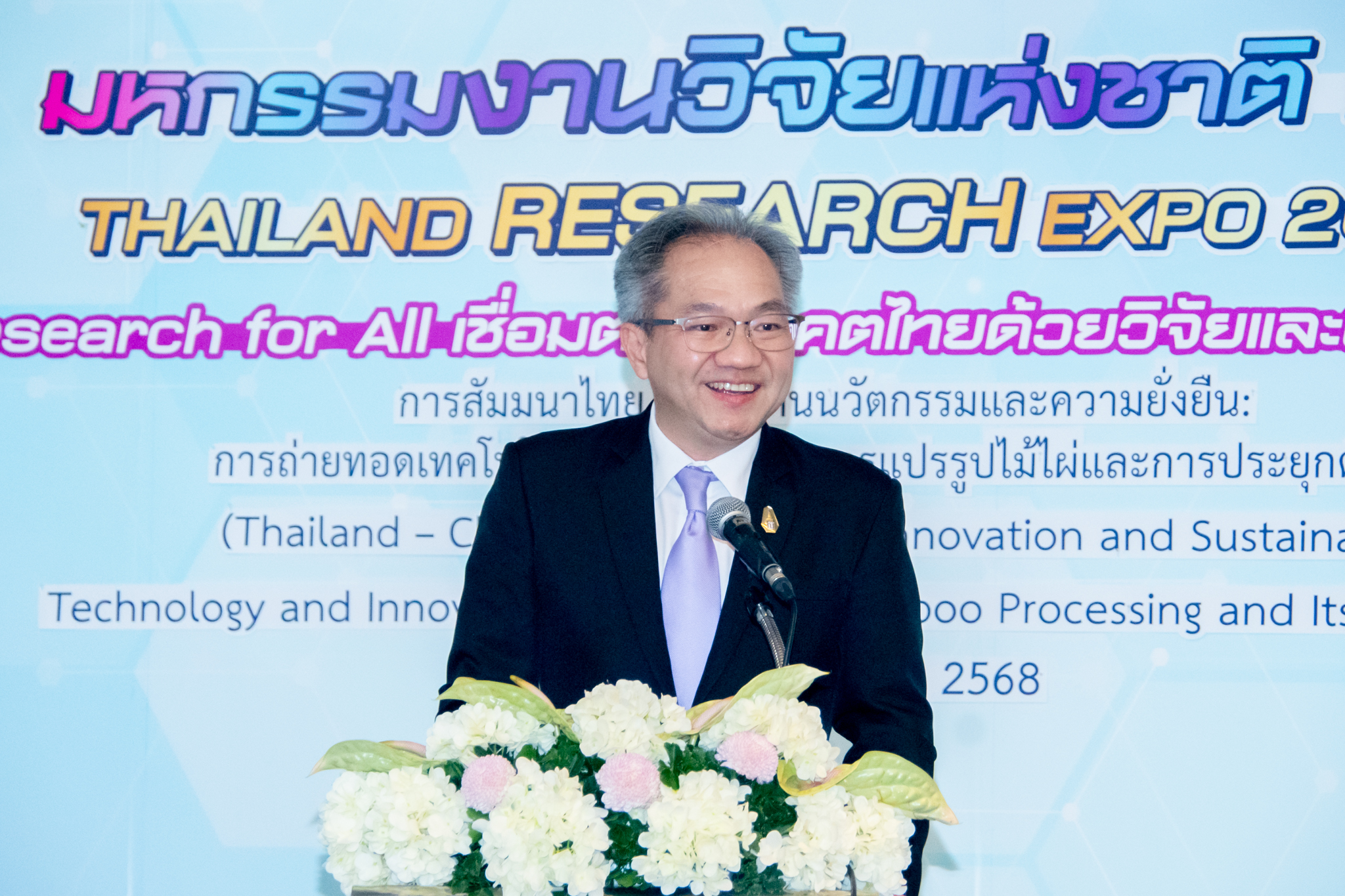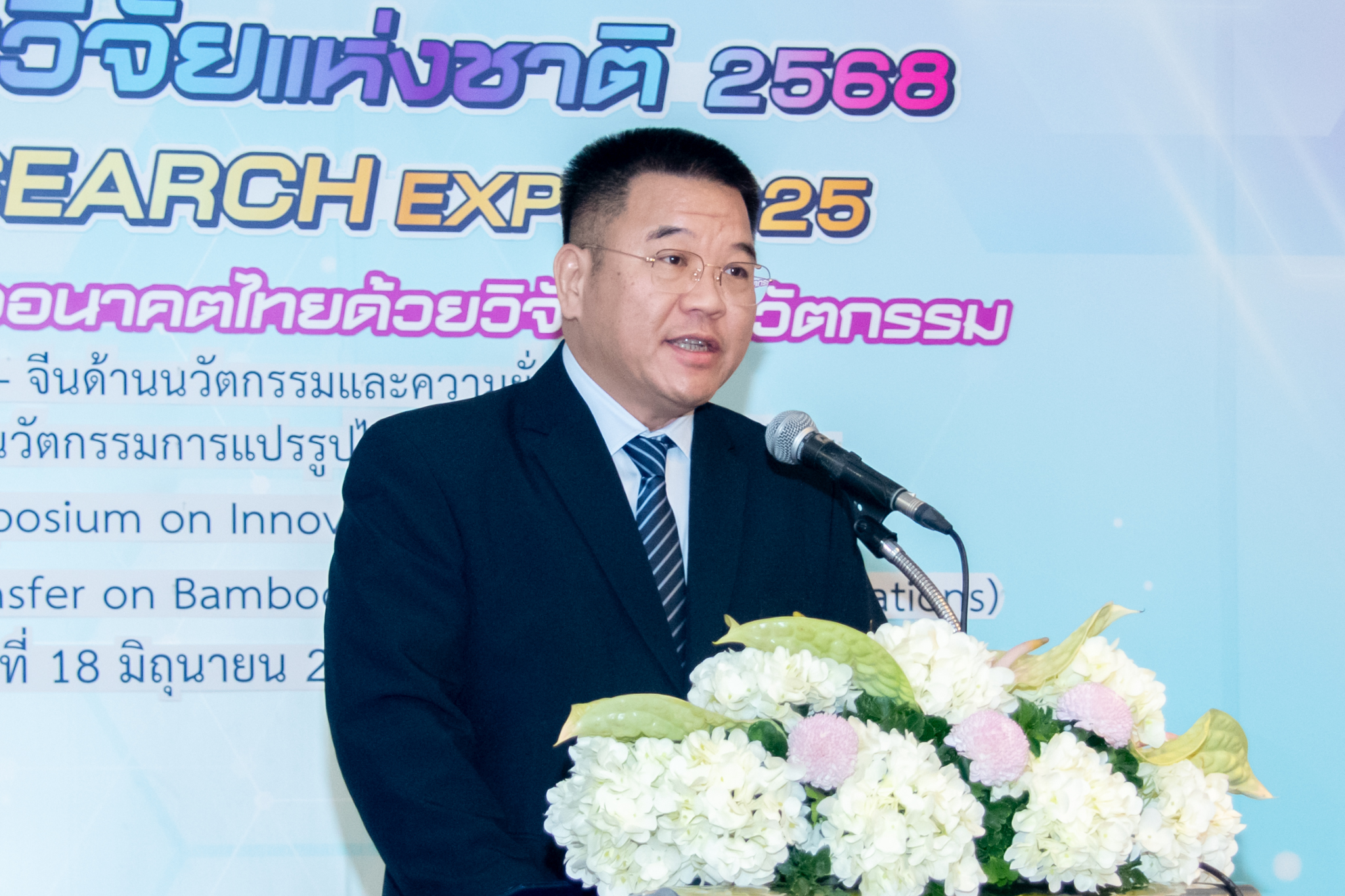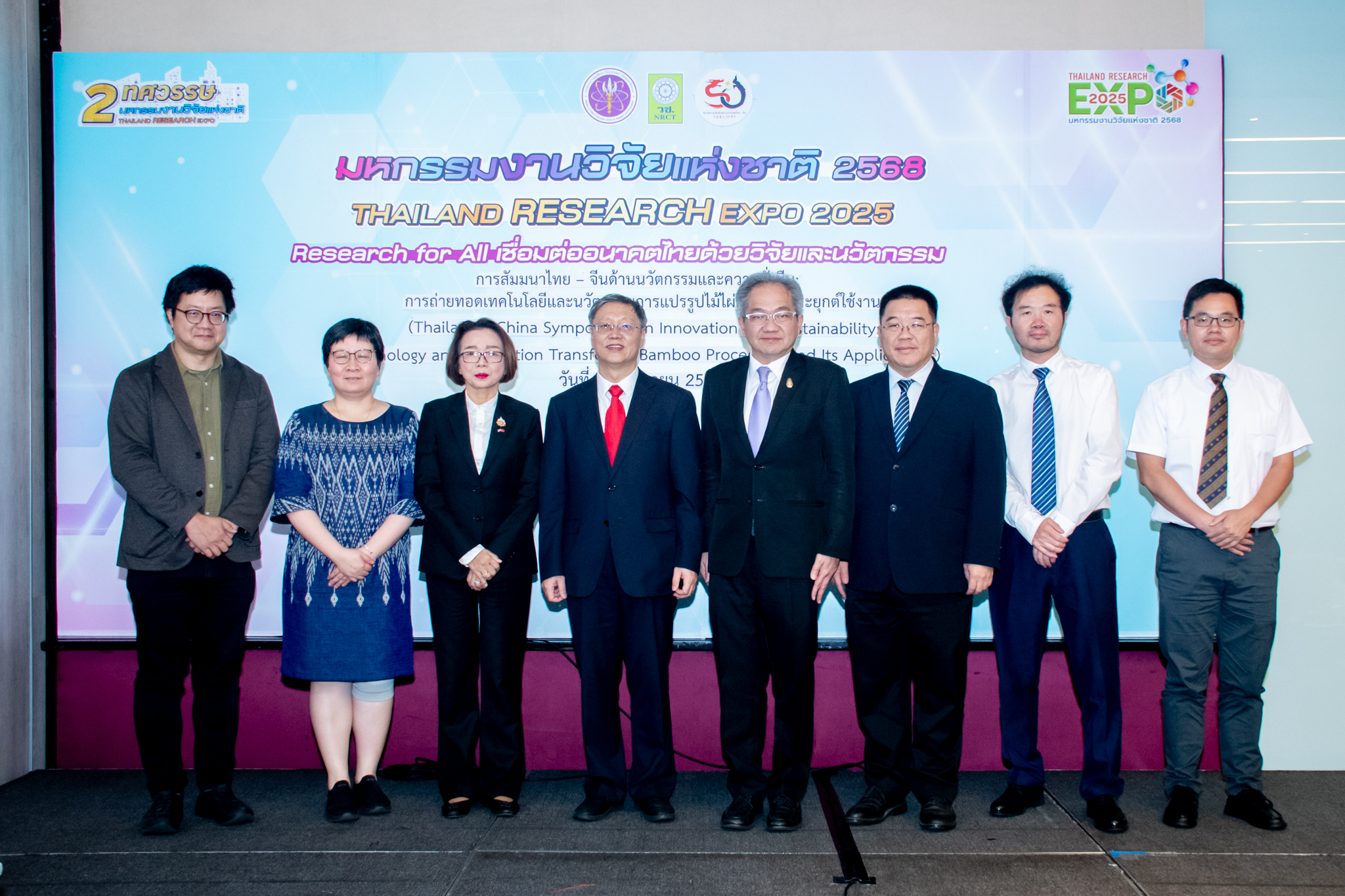June 18, 2025 - The Ministry of Higher Education, Science, Research and Innovation (MHESI), through the National Science and Technology Development Agency (NSTDA), led by the National Metal and Materials Technology Center (MTEC) has signed a memorandum of understanding (MoU) with Nanjing Forestry University (NJFU) to collaborate on R&D and technology transfer related to environmentally friendly bamboo-based construction materials. The signing took place at the “Thailand – China Symposium on Innovation and Sustainability: Technology and Innovation Transfer on Bamboo Processing and Its Application”, held as part of the Thailand Research Expo 2025.

The ceremony was witnessed by Professor Dr. Sukit Limpijumnong, President of NSTDA; Ms. Pasupha Chinworasophak, Counselor (Science and Higher Education) at the Royal Thai Embassy in Beijing; Mr. Ma Minggeng, Counsellor for Science and Technology, Embassy of the People’s Republic of China in the Kingdom of Thailand; Professor Dr. Shu Zhang, Vice Dean, College of Materials Science and Engineering, Nanjing Forestry University; Dr. Poon Thiangburanathum, Deputy Director of Program Management Unit on Area Based Development (PMU-A); and Dr. Laksamon Samanasin, Director of International Affairs, the Ministry of Higher Education, Science, Research and Innovation.
The signing was held at Lotus Room 5-6, Centara Grand & Bangkok Convention Center at Central World.

Professor Dr. Sukit Limpijumnong President of NSTDA, stated: “This collaboration between NSTDA and Nanjing Forestry University aims to explore and draw lessons on how Thailand and China can work together to unlock the potential of bamboo—through research, technology transfer, and practical applications. Bamboo, as a sustainable and renewable bio-based material, offers tremendous versatility and environmental benefits. It can play a crucial role in local community development, climate resilience, and serve as a raw material for bio-based innovation. NSTDA is proud to contribute to advancing sustainability through the Bio-Circular-Green Economy (BCG) model, which integrates the bioeconomy, circular economy, and green economy by leveraging science, technology, and innovation, with inclusive participation across sectors to achieve the Sustainable Development Goals (SDGs).”

Assoc. Prof. Dr. Toemsak Srikhirin, Executive Director of MTEC, added: “This signing marks a significant step in strengthening cooperation between MTEC–NSTDA, Nanjing Forestry University, and related organizations to drive research and development—particularly in the transfer of environmentally friendly bamboo construction technologies. This partnership will facilitate the exchange of resources, build on complementary strengths, and apply developed technologies in real-world contexts to deliver impactful and sustainable outcomes.”
The objective of this partnership is to exchange perspectives and discuss emerging trends in research, material innovation technology related to materials innovation and sustainability. It also aims to localize and adapt international technologies for long term sustainability and promote industrial sustainability through the establishment a joint laboratory for resources sharing and collaborative research—especially in bamboo processing and application—ensuring practical results and long-term positive impact .

This collaboration builds on MTEC-NSTDA’s ongoing efforts in technology localization. By acquiring advanced foreign technologies and machinery and further developing them through Thai expertise. MTEC has successfully enables their practical use by Thai entrepreneurs and end users.
Strong support from both China and Thailand partners, particularly within The Mekong Region Environmental Programme, under the UN Environment Programme (UNEP), has led by tangible cooperation between two organizations. Through these efforts MTEC-NSTDA has engaged with the College of Materials and Engineering, Nanjing Forestry University (NJFU).
Furthermore, NJFU by an MTEC delegation in May 2024 reinforced mutual confidence in knowledge sharing, technology exchange and joint international collaboration in bamboo processing between Thailand and China. This marks significant step forward in expanding bilateral cooperation and celebrating 50 years of diplomatic relations-symbolizing the enduring friendship and deep-root collaboration between the two countries.
